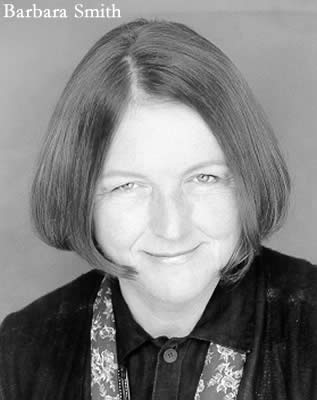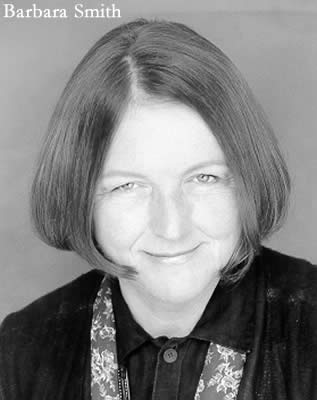 American Cinematheque is a Los Angeles Mecca for fans of cinema as art, especially international cinema. To learn more about the activities of the American Cinematheque, we talked to Barbara Zicka Smith, who co-founded the American Cinematheque.
American Cinematheque is a Los Angeles Mecca for fans of cinema as art, especially international cinema. To learn more about the activities of the American Cinematheque, we talked to Barbara Zicka Smith, who co-founded the American Cinematheque.
Barbara Zicka Smith has served as the organization’s Executive Director since 1992. Currently, she is involved in developing the historic Egyptian Theater in Hollywood as the permanent home of the American Cinematheque. Prior to her involvement with the Cinematheque, Smith was the Associate Director of the legendary Los Angeles International Film Exposition (FILMEX) from 1977 to 1983.
Bijan Tehrani: Please tell us about the activities of the American Cinematheque, where it started and where you are with it now.
Barbara Smith: The Cinematheque grew out of Filmex, which was the big film festival in Los Angeles in the 70s and early 80s. It was a very long festival—some years it went on for 25 days—but there was nothing going on back then, there weren’t video store on every corner (there aren’t now either but for different reasons). People really had no chance to see foreign films in Los Angeles, and this festival brought that chance. At the high point of the festival, we used to have screenings in a 1,400 seat theater and a 700 seat theater with four to five screenings a day. They were pretty much always full, which seems surprising when you see the attendance for foreign films in L.A today.
While we were doing that, we thought since we were working so hard to make it happen, we should really do it year-round. We spent many years trying to find a place to do this. There were many possibilities; many developments wanted to include us but those didn’t work out. We did screenings at the Raleigh Studios for a bit, but we really felt we needed to be our own entity. The city then bought the Egyptian Theatre because they were trying to redevelop Hollywood Blvd, East of Highland, so we submitted a proposal, bought the building and renovated it with money we raised. We rehabilitated the theater and opened it in December 1998. That was working very well and a few years later we acquired the Aero Theater and started programming there as well.
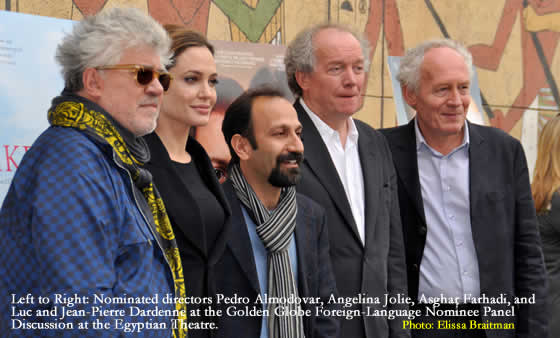
BT: How is the audience interest today for the Cinematheque?
BS: There’s a huge interest. We’ve been through many changes. What we’ve noticed is that in the 70s we had an art-house audience, used to seeing movies from any country. Then that audience, over the years, started getting older and stopped going out as much—my theory is because they got home systems—so we got a dip in the audience and we thought about this a lot. Margot Gerber has done a tremendous job with social media, and now we have a young, energized audience again who realizes that you can only see Lawrence of Arabia on the big screen, or that seeing movies on a laptop is not as satisfying as the movie theatre.
As far as foreign movies, there used to be more local foreign journals and we knew exactly where to go to promote the films, but that all started changing too. I think a lot of those papers have gone out of business, but now we have the internet, we can turn out a good audience. We do a lot of foreign film festivals—Irish, Spanish, Italian, French, Japanese, Croatian, Belgian, Argentinian—and a lot of festivals also rent our theater for a very low price. Last weekend, there was the Turkish Film Festival, and the Brazilian Film Festival is coming up. The Arpa Festival takes place at the Egyptian too, and they all seem to be doing very well!
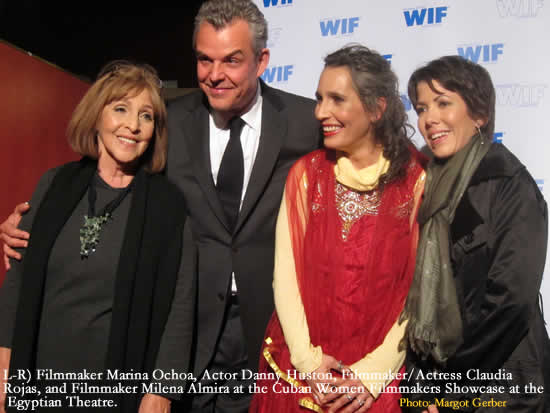 BT: Do you get filmmakers to your screenings?
BT: Do you get filmmakers to your screenings?
BS: Yes, we make a big effort to do that. This can be very expensive, which is why we are very fortunate to be working with many consulates that often have funds to fly people here. In January we also work with the Hollywood Foreign Press and show all of their foreign nominees. On the Saturday after these five screenings, we do a free seminar. Fortunately for us, it’s the day before the Golden Globes, so we generally have all five filmmakers present and we do a big thing with them.
BT: Do you have an archive of some of the films that you show?
BS: No, we don’t. We donated what we had to the Academy, like the great collection of Russian films we used to have.
BT: How do you see the differences between the American Cinematheque and the French Cinematheque?
BS: The main difference is Cinematheques in other countries, or France in particular, are funded by the government, so they can figure out what they want to do with their budget instead of having to raise money all the time. That’s a huge difference. Now, we will see in these economic times if these governments can continue to do that. The U.S. government doesn’t have anything like that; no funding that you can count on each year. There are some grants for specific projects, for example, but you have to apply for them and you are never sure you will get them from year to year. We always have to be self-sufficient and inventive.
BT: Among the many guests that you have had recently, does anyone stand out?
BS: My favorite guest is Agnes Varda. We showed her last two films, as well as The Gleaners and I and her work she has done here in L.A., such as Lions Love.
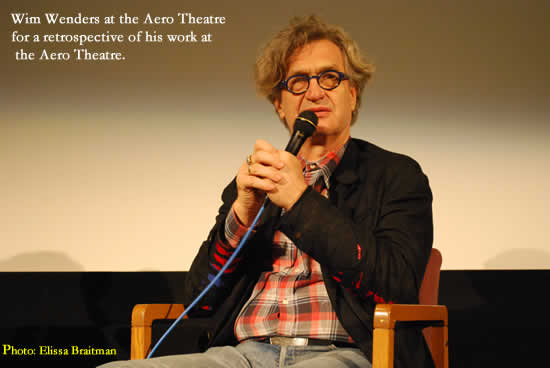
BT: What is coming up in the near future at the Cinematheque?
BS: A lot of the foreign film festivals take place in the fall. For some reason, the consulates seem to all want the fall, so one week-end after another involves Foreign Film, and if you saw our fall calendar, you’d think we only play Foreign Films. Right now, if you look at our program you’d think we only show Film Noir and Classical films. We also do a Belgian series once a month at the Aero and we have the Croatian Film Festival coming up. Of course, we show foreign films all the time, but they are not all considered festivals. We would like them to be more spread out, but that is how it’s turned out to be. We are also doing an international Children’s Film Festival pretty soon. Most children’s film festivals are mostly short films, but we will be showing many features for children ages 3 to about 14, and we are doing that with the International Children’s Film Festival in New York, which is incredibly popular. We are doing two week-ends and it’s a very good festival which we are very happy to be working with this year. There will be some subtitles for the older children too, and I think this is a good way to grow our audience!
BT: How can film fans attend the screenings of the films?
BS: We have a membership which really supports our program. The membership gives a $7 discount on Regular Admission tickets, while also offering access to members-only screenings. The discount is for everything that we do. I think a lot of people find out about us through our website or online, so that is a great way for film fans to access our screenings. We also have student discounts for many programs and a lot of the consulates we work with give out free tickets to students they are in touch with. Also, the Hollywood Foreign Press gives out 100 free tickets to students for each screening. You can also just buy tickets on our website or at the theater directly.
BT: Thank you so much!

